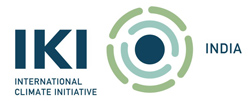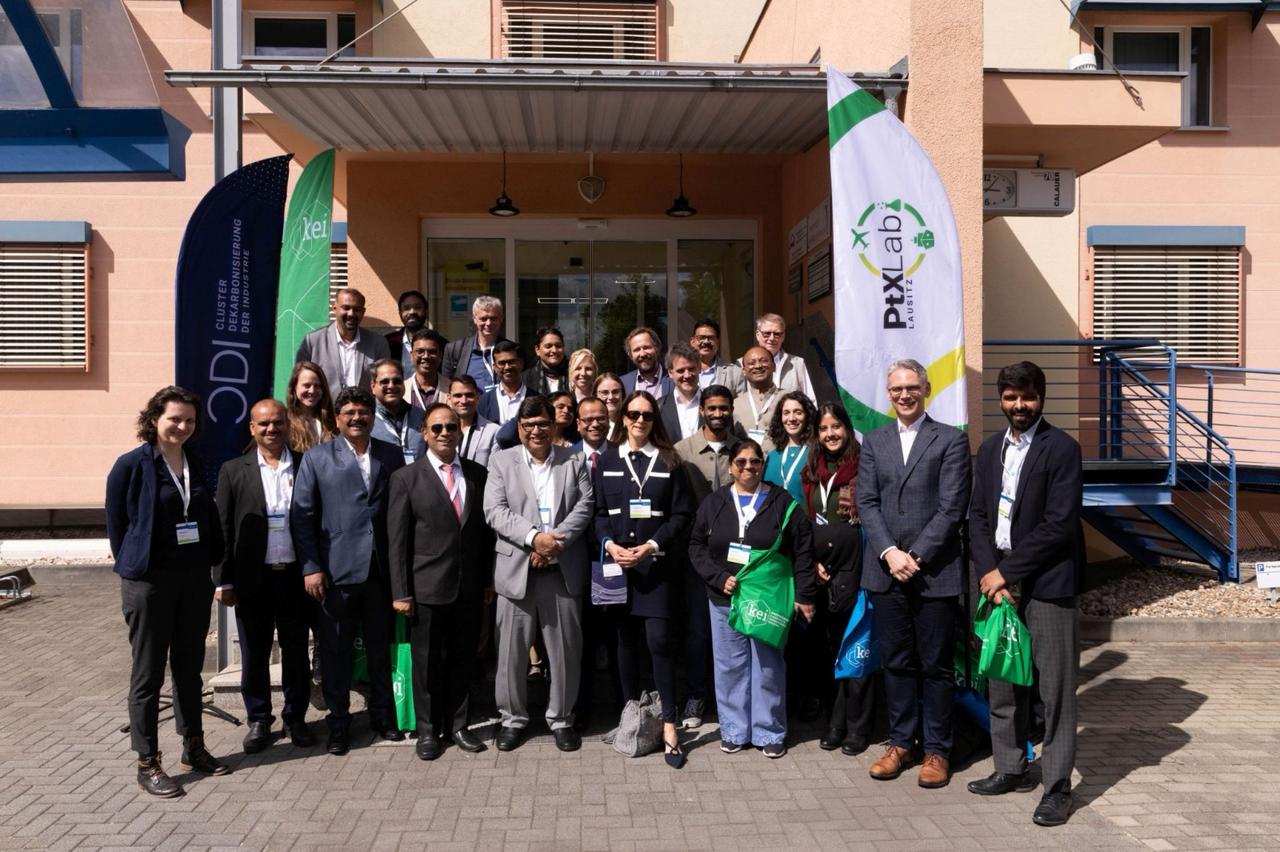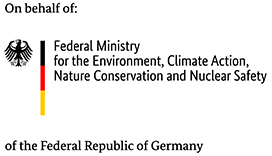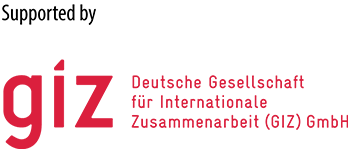Indo-German Exchange Visit on Decarbonisation of Industries
April - June 2025IKI Interface Project
GIZ
Between the 3rd and 12th of May 2025, a delegation of nineteen senior professionals from Indian Public Sector Enterprises (PSEs), research institutions namely Council on Energy Environment and Water (CEEW) and The Energy Resources Institute (TERI), the apex body for PSEs in India, Standing Conference of Public Sector Enterprises (SCOPE) and the IKI India Interface Project team at GIZ India embarked on a ten-day study tour across Germany.
The exchange visit themed on ‘Decarbonisation of Industries’, was jointly facilitated by the Deutsche Gesellschaft für Internationale Zusammenarbeit (GIZ) GmbH and the Standing Conference of Public Sector Enterprises (SCOPE) under the Indo-German Support Project for Climate Action in India and IKI India Interface Function.
The visit aimed to promote knowledge exchange and identify pathways for India’s energy- and emissions-intensive industrial sectors to accelerate decarbonisation pathways. The programme was strategically designed to give Indian PSEs and research institutions an exposure to Germany’s policy frameworks, technologies, and to strengthen institutional collaborations supporting industrial decarbonisation in India.
The PSEs that participated were National Hydroelectric Power Corporation (NHPC), Indian Renewable Energy Development Agency Limited (IREDA), National Thermal Power Corporation (NTPC), National Mineral Development Corporation (NMDC), Central warehousing Corporation (CWC), Steel Authority of India Limited (SAIL), Bharat Electronics Limited, Powergrid Corporation of India Limited.
Context to the study tour:
Industries are key drivers of economic development, job creation, and technological advancement, at the same time their transition to low-carbon pathways is essential for meeting climate targets. Recognizing the urgency of climate action in the industrial sector, the Government of India is a key participant in the Leadership Group for Industry Transition (LeadIT). LeadIT aims to drive the transition of heavy industries to net-zero emissions through policy dialogues, technology collaboration, and knowledge-sharing. India’s active engagement in LeadIT underscores its commitment to advancing industrial decarbonization and fostering cross-border cooperation to accelerate this transition.
In this regard, India’s Public Sector Enterprises (PSEs) play a pivotal role. PSEs are key drivers of economic growth, contributing 13% to GDP and employing 1.7 million people. Operating in CO₂-intensive sectors like metals, minerals, chemicals, and heavy machinery, they play a crucial role in both industrial development and climate action.
Strategic Objectives of the Visit:
The strategic objectives of the visit were centered around advancing industrial decarbonisation through targeted collaboration and knowledge exchange. The visit aimed to identify viable pathways for reducing emissions while leveraging international partnerships and innovation ecosystems to accelerate industrial transformation. It facilitated direct engagement between Indian public sector enterprises and German government bodies, research institutions, and industries, fostering dialogue on low-carbon technologies and best practices. Additionally, the visit sought to strengthen institutional collaboration to support low-carbon innovation and effective policy implementation. The visit also explored opportunities for joint research and development, pilot initiatives, and technology deployment to drive scalable and sustainable industrial decarbonisation efforts.
Key Visits and Knowledge Exchange Highlights (3–12 May 2025)
The study tour progressed through Bonn, Jülich, Wuppertal, and Cottbus, combining site visits, expert workshops, and institutional dialogues on industrial decarbonisation. The meetings and interactions that took place in each city are as follows:
Frankfurt:
- Frankfurt School of Finance and Management: At the Frankfurt School of Finance and Management, the delegation participated in a training workshop on internal carbon pricing, green finance mechanisms, and performance-based incentives. The active participation of Indian PSEs during this workshop indicated a demand for similar workshops and more detailed trainings with the institution.
- VDE Institute: At the VDE Institute, the group discussed standardisation and certification for CO₂ reduction in electrical products. The discussions highlighted the potential value of developing Life Cycle Assessment (LCA)-based laboratories in India.
Bonn:
- Decarbonisation Team, GIZ Bonn: The GIZ team in Bonn presented the ongoing projects across the globe on industry decarbonisation, including policy approaches and technologies. This preliminary discussion paved the way for a more detailed interaction in the near future.
- Mitigation Division, UNFCCC Secretariat: The discussion at UNFCCC brought to attention tools such as the Industrial Transition Accelerator. The Industrial Transition Accelerator (ITA) is a global multi-stakeholder collaboration with an initial three-year mandate to unlock investments and turbocharge the delivery of decarbonisation solutions across heavy industry and transport. Launched at the COP28 World Climate Action Summit by the United Arab Emirates, United Nations Climate Change, and Bloomberg Philanthropies, the ITA brings together a vast network of climate innovators, industry leaders, governments, and technical experts, to accelerate the pipeline of commercial-scale, clean industrial projects across six critical sectors that account for roughly 30% of global emissions: aluminium, cement, chemicals, steel, shipping, and aviation. Learning about this tool and its potential in supporting industry decarbonisation was among the key outcomes of the study tour.
Jülich and Wuppertal:
- German Aerospace Centre (DLR): The visit to the German Aerospace Centre (DLR) included a detailed tour of the Centre’s Concentrated Solar Technologies and Synlight Facility. Some PSEs expressed interest in exploring pilot collaborations involving concentrated solar power.
- Wuppertal Institute: The Industry Decarbonisation Unit in the institute shared policy insights and innovation frameworks for industrial decarbonisation based on its ongoing research and findings. A part of the discussion focussed on the steel sector in Germany and provided some interesting insights to the officials from the Steel Authority of India Limited (SAIL). This session highlighted that enhanced cooperation on industry decarbonisation (policy analysis, technologies, financing mechanisms) between Indian Research Institutions and Wuppertal Institute could be of value.
Cottbus:
- Competence Centre on Climate Change Mitigation in Energy-Intensive Industries (KEI) & Power to X (PtX) Lab: The team at KEI and the PtX lab presented decarbonisation pathways for energy-intensive industries and showcased hydrogen and PtX initiatives. The participants were also given a tour of a mining and thermal power production company’s site under transition to renewable power production During the session, officials from 2 PSEs presented the ongoing efforts and future needs of India for industry decarbonisation, for example the need for India to build and expand its storage capacities. The networking session facilitated an exchange between the Steel Authority of India Limited (SAIL) and Arcelor Mittal (one of the biggest steel manufacturers) on reducing emissions in steel production.
- Sonocrete GmbH: The group visited Sonocrete’ facility and learnt about their CO₂-reducing concrete through soundwave technology. Sonocrete reduces the carbon intensity of cement by using high-power ultrasound to accelerate the hydration process, enabling up to 30% less cement usage without compromising strength. This innovative premixing technology fits into existing precast production lines and has been successfully tested in real-world settings. By cutting clinker content, it significantly lowers CO₂ emissions, saving up to 1.4 tonnes per concrete girder and has the potential to reduce global emissions by 85 million tonnes annually if widely adopted. Selected PSEs showed interest in testing this technology for Indian construction.
Berlin:
- Industry-Industry Collaboration on steel decarbonisation, discussion with the German Steel Association (Wirtschaftsvereinigung Stahl), E3G, NewClimate Institute: The discussion shed light on important insights on the technological pathways and policy enablers needed to transition toward low-carbon steel production. The representative from the German Steel Association spoke about the role of the EU Emissions Trading System (EU-ETS) and the emerging Low Emissions Steel Standard (LESS).
- Session with German Government Officials: A high-level session was held with representatives from Germany’s Federal Ministry for Economic Affairs and Energy (BMWE) and the International Climate Initiative (IKI). During this session, participants shared their experiences, key learnings from the visit and potential areas of future collaboration.
Concluding session:
The tour ended with feedback and concluding session, wherein participants shared their experiences in detail and identified areas of collaboration that could be explored further to accelerate industry decarbonisation. Indian PSEs also welcomed German industry to India for a similar exchange visit.
Participants described the study tour as a timely and impactful learning opportunity, highlighting Germany’s strong policy coherence, technological innovation, and research-driven decarbonisation strategies. Several delegates emphasised the need for joint research, technology transfer, and financing models to support industrial transformation in India, while also noting mutual learning potential for German partners.
This visit reaffirmed that international cooperation anchored in mutual learning and practical exchange is indispensable for meeting the shared climate and development challenges of the 21st century.
Copyright © 2026 All rights reserved





